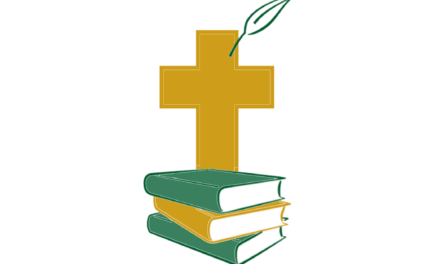What is the first sphere of government? Where does the motive for an individual lie?
“He knows not how to rule a kingdom, that cannot manage a province; nor can he wield a province, that cannot order a city; nor he order a city, that knows not how to regulate a village; nor he a village, that cannot guide a family; nor can that man govern well a family that knows not how to govern himself; neither can any govern himself unless his reason be lord, will and appetite his vassals: nor can reason rule unless herself be governed by God, and (wholly) be obedient to Him.”
– Hugo Grotius- (As quoted in Teaching and Learning by Rosalie J. Slater)
Much of the understanding of the one-room school house, of Principle Approach® education, of the Providential understanding of God in history and teaching comes from an understanding of the above quote by Hugo Grotius. The best form of government is always that which originates from within an individual who has submitted his/her life to the law and truth of God. The next form of government comes from the immediate family and close acquaintances of the individual, and the next sphere of control comes from those in your geographical area. Each successive enlargement of the numbers of people under a sphere of government, the less power that sphere of government should have.
What does this academic mumble-jumbo have to do with you? Why would a quote from a Dutch man who died many, many years ago have relevance to you, a 21st Century person in a globalized, electrified world wide web of interactions, businesses, governments and loyalties? I know for myself that the power of this quote is that it is true. I cannot govern myself unless will and appetite are submitted to reason and reason itself is submitted to the God who called Himself “the way, the truth, and the life”. If I cannot govern myself, why should I be trusted to educate your children? If I cannot control my will and emotions (a more modern word for appetite), how can I teach children anything? So from here, from self-government, we begin to build an understanding of government, of business and of education. A local, self-governing and sustaining system of education. A philosophy which produces wisdom and a love of the truth.
Why not try and teach self-control within the current state controlled educational system? An excellent question was posed in the movie Ever After by the Cinderella character “A bird may love a fish, but where shall they live?” This question can be addressed to the modern issues surrounding state education. While there are many excellent teachers and administrators in public schools, the fundamental issues with state controlled education is it flips the order of government on its head. The idea behind “public” education is that people in control of the state have a better knowledge of your children than you, the parents, do. This leads to have a top-down form of government which produces factory schools where the goal is getting a certification that this student or that student is equipped to work in the modern American work force.
This is not the way our nation was started and founded. Fans of the series Ann of Green Gables will have read of the educational options which an 18th century student in any modern country would have had (Anne lives in Prince Edward Island, Canada). If a student and the student’s parents desired to prepare the student for jobs at home or in the town, then all that student would need is an eighth grade education, learning the basic skills of reading, writing, and basic arithmetic. This is still the practice among Amish schools where students graduate from eighth grade and are then allowed to work on the farm and start taking ownership of their family’s land, crops and livestock. After graduating from the common school in her community, Anne has to look for and apply to a high school in another community, because Avonlea is too poor to afford a high school. So, we see the spheres of government at work: there is a local school controlled by the parents and leaders of the local community. This is necessarily limited to the means of the individuals represented.
The next level of government is “Queen’s Academy” a high school which represents Avonlea, as well as the surrounding communities. Finally, Anne goes to a University to earn a Bachelor’s Degree. We see in these stories an example of how government must be built, of how education and learning must grow within an individual, and of how individuals are given the freedom to think, learn, and most importantly choose for themselves.
Contrast this image, starting with the one-room school house, and moving up and out at the student’s choice and pace with a modern educational system. Busing, an emphasis upon graduating from ever successively redundant levels of schooling, increasingly larger class sizes and a nation-wide consolidated school system all take away the rights of individual students and the responsibilities of individual parents.
We must return to the education of our students by their parents by introducing methods of education which can be done in small settings, by poor groups of people, or even in the home if need or desire allows the parent to choose that.


